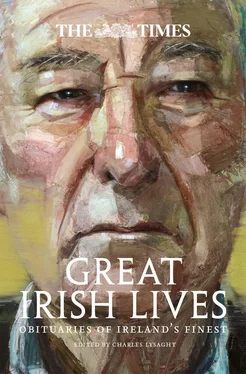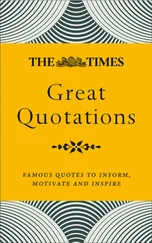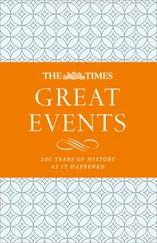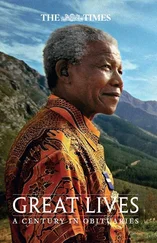* * *
EARL OF ROSSE
2 NOVEMBER 1867
OUR OWN CORRESPONDENT in Dublin writes:-
The Earl of Rosse died yesterday, after a protracted illness, at his residence in Monkstown, County Dublin. In the world of science a death will leave a blank which the most distinguished of his associates will long view with painful concern. This was the sphere in which his great qualities could alone be appreciated, and where his genius shone amid the brightest of those who have adorned the age in which they lived. He was the eldest son of the second earl, and was born on the 17th of June, 1800, in the city of York. In 1818 he entered Trinity College, Dublin, and in the following year passed into residence in Magdalen College, Oxford, where he graduated in 1822. The bent of his mind was shown at this early period by the distinction which he obtained as a first-class honour man in math-ematics. About this time he was induced to enter public life, and, as Lord Oxmantown, was elected representative of the King’s County, a position which he retained until the end of the first Reformed Parliament. He also sat for a while as a representative peer. His talents, however, had no congenial field in the Legislature, and his career was not marked by any brilliant feat of eloquence or statesmanship. Though he shrank from the prominence of a Parliamentary debater, he occasionally spoke on subjects on which he felt it due to his constituents to express his opinions. Among the more remarkable was Mr Whitmore’s motion for a committee of the whole House to consider the Corn Laws. He was opposed to the policy of repealing them, and showed the effect which it would have, especially as regards this country. He resisted Mr Hume’s motion for the abolition of the Lord Lieutenent on the ground that it would increase absenteeism. … After retiring from Parliament Lord Rosse applied himself with greater zeal and assiduity to the pursuit of astronomical science. He conceived the noble purpose of surmounting the difficulties which stood in the way of a more accurate observation of the heavenly bodies, and with unexampled patience and persistent energy applied himself to the self-imposed task. His wonderful mechanical skill and scientific knowledge enabled him ultimately to achieve his object. It was not until after repeated experiments and failures, which would have daunted a less determined or enthusiastic worker, that he at last succeeded in producing those magnificent instruments which have won for him European fame. The art of making reflecting telescopes of vast compass and power may be said to have originated with him, and has certainly been brought by his unwearied diligence and inventive sagacity to a perfection which before he undertook the task would have been pronounced impossible. No work can be imagined of more exquisite delicacy, and his success in overcoming the complicated difficulties which arose at every step is a marvel of patient ingenuity. The mirror of Lord Rosse’s largest telescope is a circular disc of metal weighing four tons, and measuring six feet in diameter; and a faint conception of the obstacles which he had to encounter may be formed when it is remembered that, in order to collect the utmost possible amount of light, which is the great object of reflectors, it must be slightly concave, about half an inch deeper in the centre than at the edge, and not exactly spherical, but varying from the spherical form only to the extent of the ten-thousandth part of an inch. The slightest variation of these conditions would produce a defective or distorted image. Lord Rosse not only succeeded in conforming to them, but attained to probably ten times greater precision. The shape, however, of the mirror is only one of the essentials. In adjusting the proportions of the copper and tin of which it is made, in guarding against the penetrating power of the molten mass which would make its way through the pores of cast iron – and wrought iron cannot be used, for the alloy would fuse with it – in the annealing, grinding, and polishing of the mirror, the latter process being performed by machinery, the resources of his inventive mind were displayed with marvellous effect. So completely did he master the minutest detail that those who desire to follow in his steps may pursue their course with perfect confidence. The value of the discoveries which his great instrument enabled him to make in the observation of nebuli, has been universally acknowledged. All the learned societies of Europe vied in doing him honour. In 1849 he was elected President of the Royal Society. He was elected a member of the Imperial Academy at St Petersburg, and was created a Knight of the Legion of Honour by the Emperor of the French, and a Knight of St Patrick by our most gracious Sovereign. He was Custos Rotulorum of the King’s County and Chancellor of the University of Dublin. He was also a President of the British Association. In politics he was a moderate Conservative, but held independent views on some leading questions. Though English in his birthplace and descent, he was strongly attached to this country by the ties of family, property, and sympathy.
CARDINAL CULLEN
25 OCTOBER 1878
CARDINAL CULLEN, the Roman Catholic Primate of Ireland, died yesterday afternoon at his residence in Eccles-street, Dublin. It is supposed to have been caused by aneurism of the heart. His loss will give a severe shock to the Roman Catholic Church, of which he was the distinguished head in Ireland, and will be generally regretted, even by those who differed most widely from him on religious and political questions.
Of the early life of the Right Rev. Paul Cullen, D.D., but little is known beyond the fact that he was born about the year 1800, in the county of Meath, and was a member of a respectable family, engaged in agricultural pursuits. They are now among the most wealthy graziers in the country, and have considerable property in Meath and Kildare. His Christian name, which is not at all a common one in Ireland, would seem to denote an early dedication of his life to the priestly office to which especial honour is attached in a social as well as religious aspect by the Roman Catholic peasantry and industrial classes. Having been ordained for the ministry, he was sent to Rome, where he spent nearly 30 years of his life, and rose to a position of trust and eminence in the councils of the Vatican. He was officially connected with the management of the Irish College at Rome, but this was the only bond of connexion with his own country, and there can be no doubt that his ideas were deeply tinged by the impressions derived from foreign experience, and associated with the narrow circle in which he moved. In 1849 the death of Dr Crolly, Roman Catholic Archbishop of Armagh, created a vacancy in that important See, and, the Suffragan Bishops having been divided in opinion as to the choice of his successor, the Pope settled the dispute suo more by appointing Dr Cullen Primate of All Ireland. This exercise of Papal authority was regarded as an infringement of the elective rights or usage which had been previously recognized, and created much dissatisfaction at the time, though the supreme will of the Holy See was obeyed. To avoid scandal in the Church the bishops and clergy who had lived under a different regime suppressed their discontent, and the feeling gradually wore away. It was the first step, however, towards the enforcement of a despotic control which has since dominated the whole ecclesiastical system in Ireland. In pursuance of what seems to have been a deliberate purpose, the vindication of a principle which may be deemed essential to the preservation of unity and the concentration of power, the pre-existing plan of clerical government has been changed. The degree of independence which had been before enjoyed was taken away, and bishops and clergy were brought more into subjection to the direct authority of the Vatican. In furtherance of this policy, bishops were no longer elected by the clergy, and the old constitutional office of parish priest was superseded by that of administrator. The former possessed an independent parochial jurisdiction so long as he did not violate any canonical law, while the latter had no fixity of tenure, and might at any time be removed at the will of the diocesan, without being entitled to any compensation for even capricious disturbance. This change, which is being gradually and steadily worked out as opportunity offers, constitutes one of the most remarkable points of difference between the government of the Church of Rome in Ireland in the days of Cardinal Cullen and those of his predecessor. On the death of the late Dr Murray in 1851 Dr Cullen was transferred from the Primatial See of Armagh to the more important though less ancient and in an ecclesiastical sense, less dignified one of Dublin. No two characters could be more different than those of the mild and genial Archbishop Murray, whose liberal spirit conciliated many opponents of the Catholic claims and attracted the cordial esteem and friendship of the Protestant gentry, and the ascetic prelate who possessed no social sympathies, but looked, if not with suspicion and distrust, at least with cold and gloomy reserve, upon those of a heretical creed. He set up a new and strengthened by every means the old barrier of sectarian isolation and exclusiveness, and the result is the growth of a spirit in the country which may be more zealous and devotional but is also more narrow and illiberal than prevailed before his time. He was, as every one knows, an Ultramontane of the most uncompromising type, and though there were many, both of the clergy and laity, who dissented from his opinions, few had the courage to oppose them, enforced as they were by a systematic policy which made its influence felt and feared.
Читать дальше












